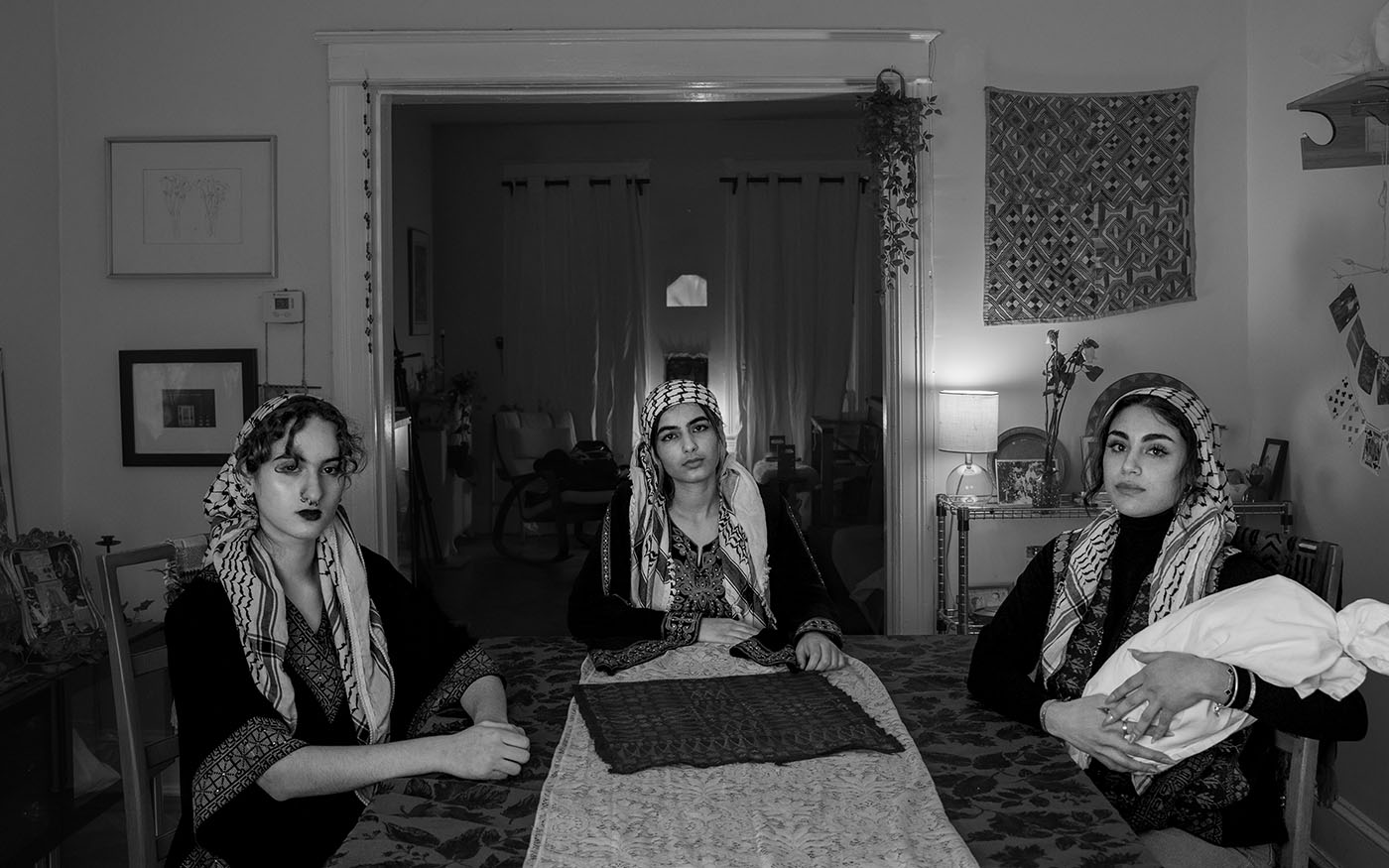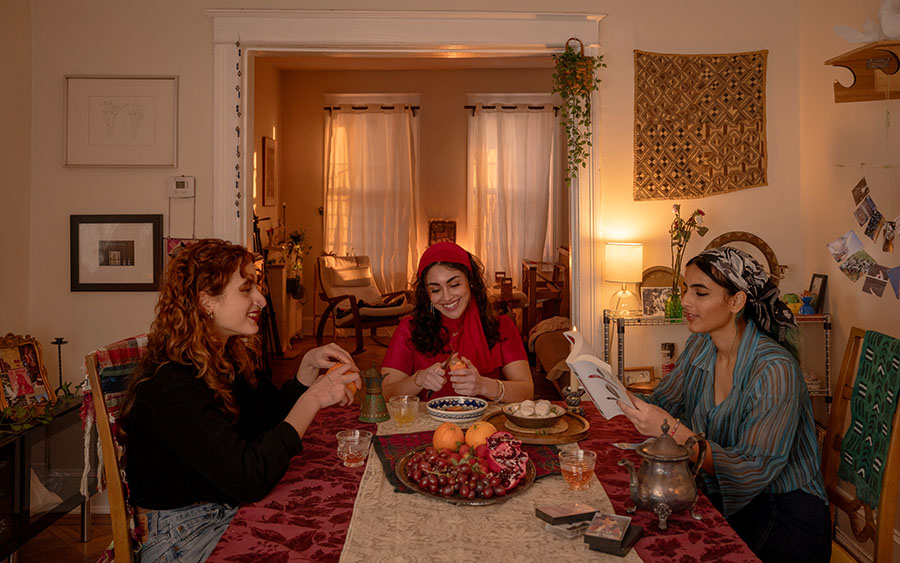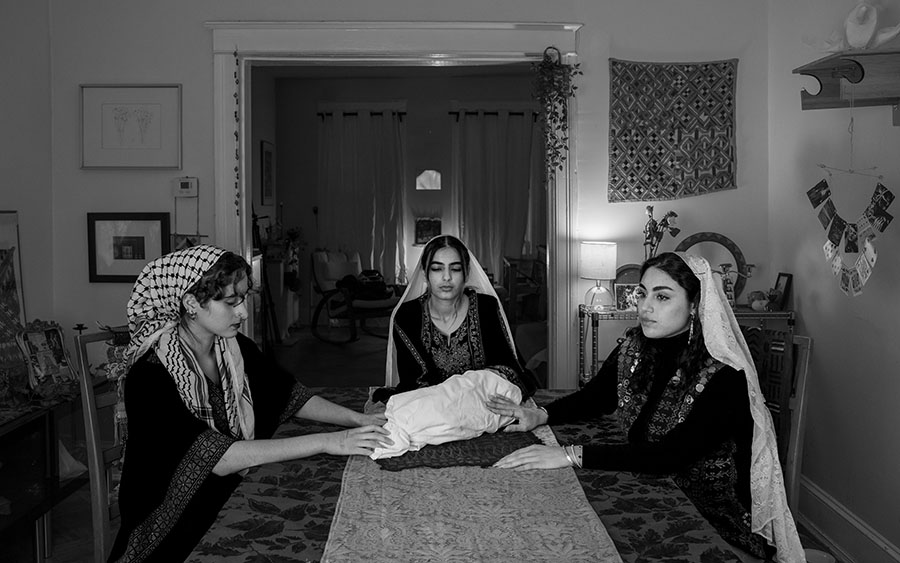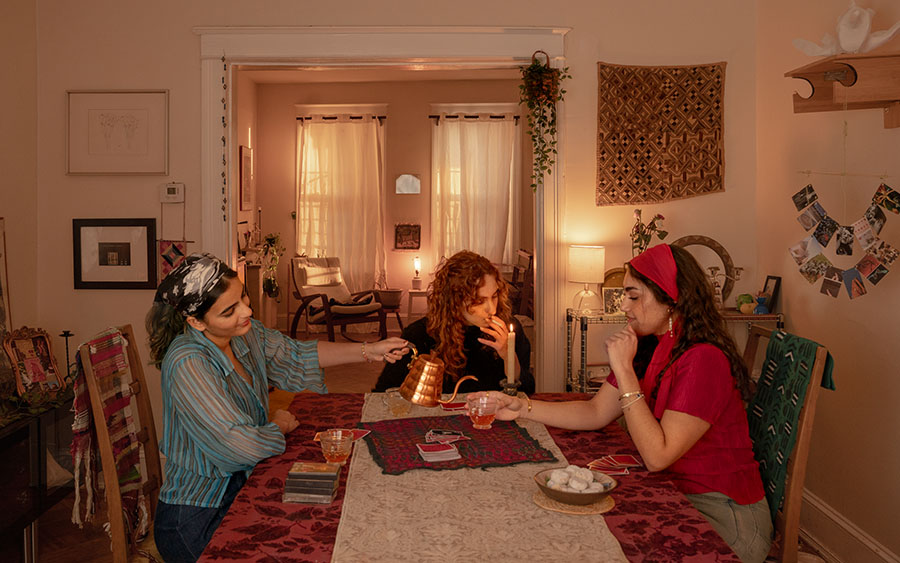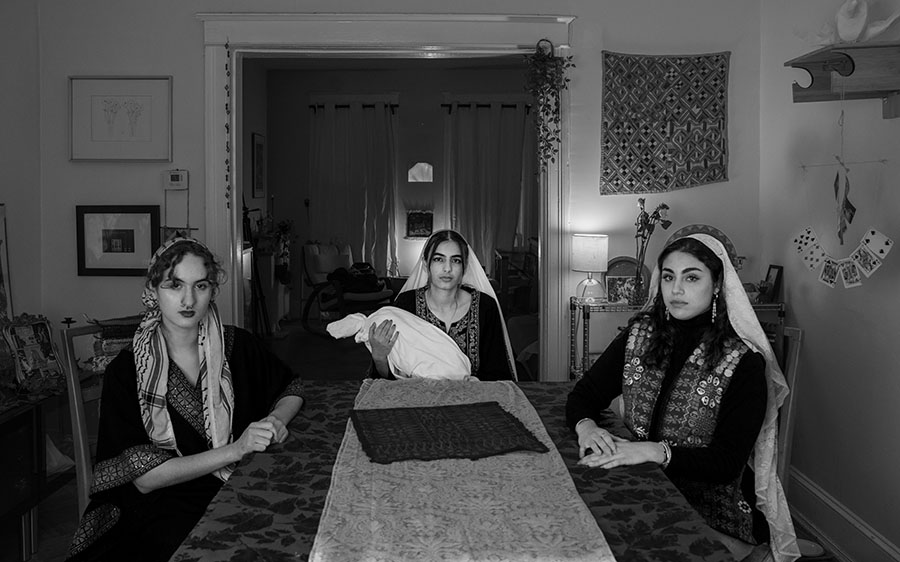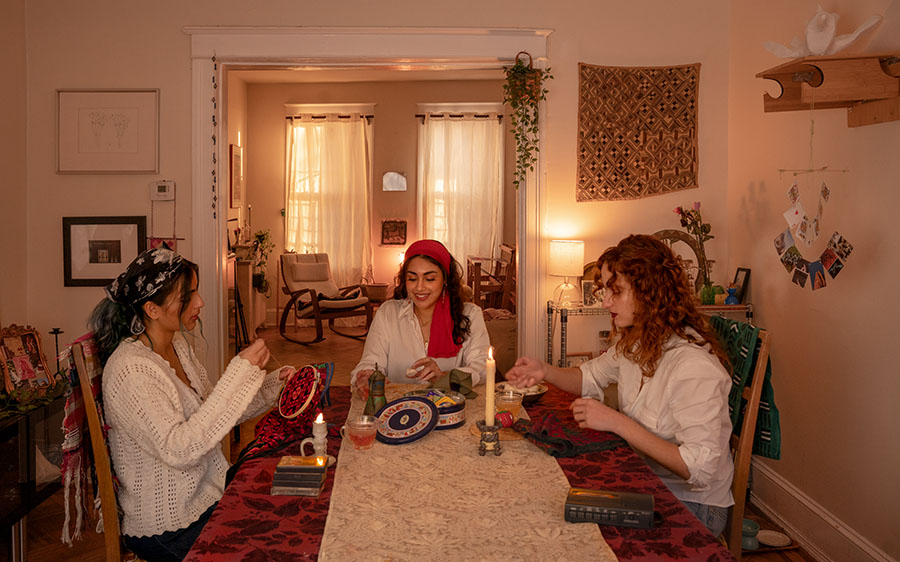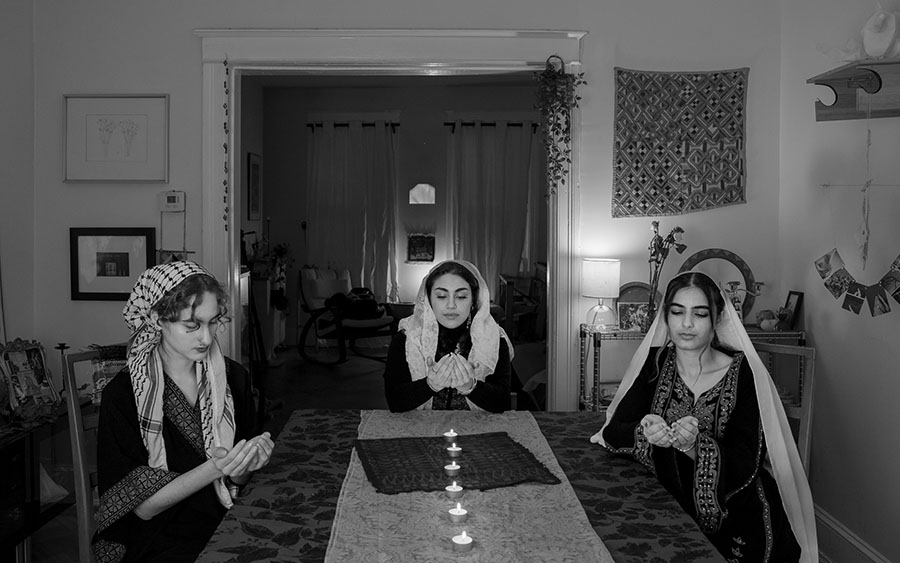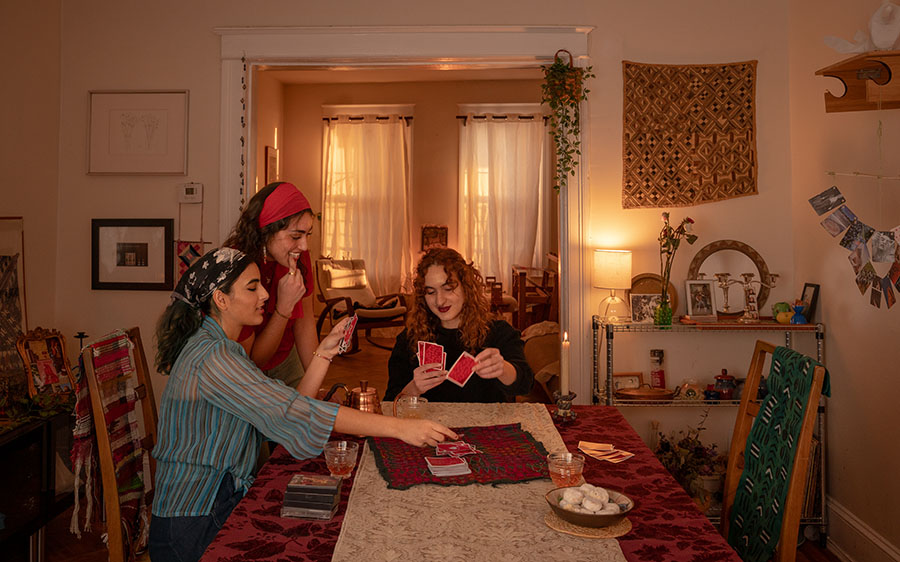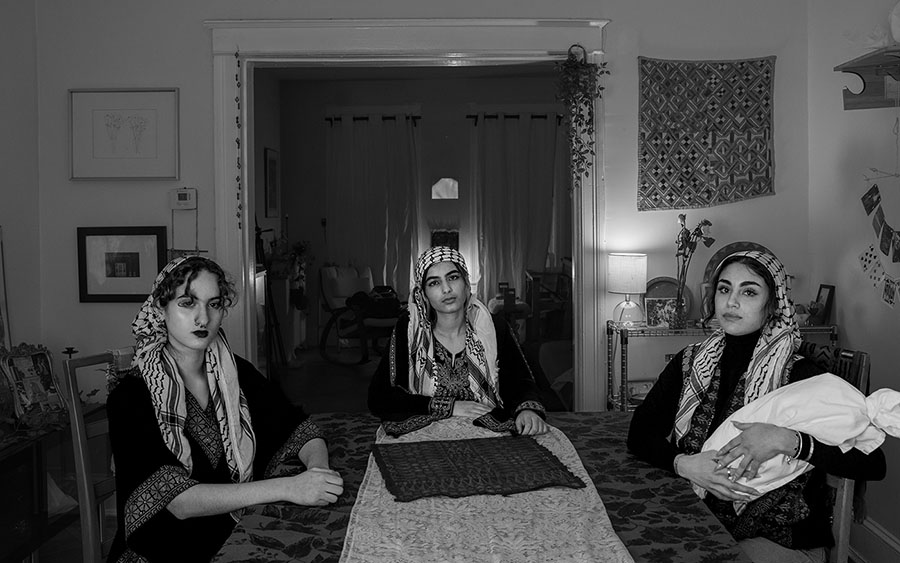A young Palestinian American attempts to find a way out of her grief with a series of stark images.
Noor
The initial segment of the series portrays Palestinian American women gathered around a dining table, partaking in shared meals, laughter, and the creation of art, all captured in vibrant, colored photographs. This tableau delves into themes of femininity, sisterhood, and cultural identity, illustrating poignant moments steeped in the nostalgic iconography familiar to Arab women: the peeling of potatoes, the intricate art of Tatreez, and the sipping of tea from a crystal set passed down through generations — the visuals embody a rich tapestry of cultural heritage.
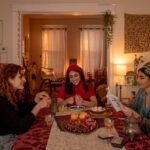
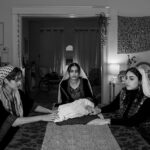
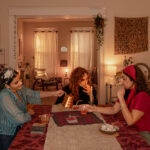
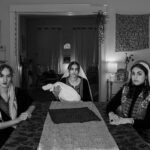
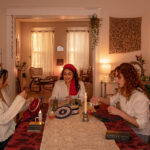
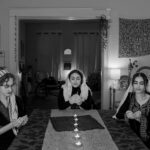

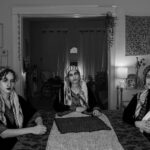
Although the women are featured together with bright smiles, an undercurrent of grief persists, noticeable by each contrasting frame acting a testament to the generational displacement, exile, and trauma witnessed by every Palestinian, whether they are in the homeland or abroad. In the alternate part of this series, the same women are re-imagined in black and white photographs, symbolizing the extension of the exile experience. These black and white photos resonate with the palpable grief and guilt experienced by Palestinians in the diaspora as they witness the brutal murder and oppression of their brothers and sisters in the homeland. In contrast to the initial frames, the women now are draped in traditional thobes and keffiyehs. They stand as a formidable embodiment of resistance and liberation, defiantly declaring the perpetual vitality of their culture.
Since early October 2023, seeing graphic photos of our shaheed (martyrs) online has become a normality for us in the diaspora. The Palestinian American women in the photographs all confront the harrowing reality that Palestinians in Gaza and the West Bank must involuntary document and broadcast the extreme brutality and loss they endure online, born out of the fear that concealing their suffering may render the world oblivious to the ongoing genocide of the Palestinian people, which is routinely hidden by the oppressive forces of Israel. The two parts of this series not only delve into the diasporic connection to resistance but also serve as a gesture to the Palestinian women in Gaza forced to lay bare their trauma — literally placing it on the table for the world to witness.



